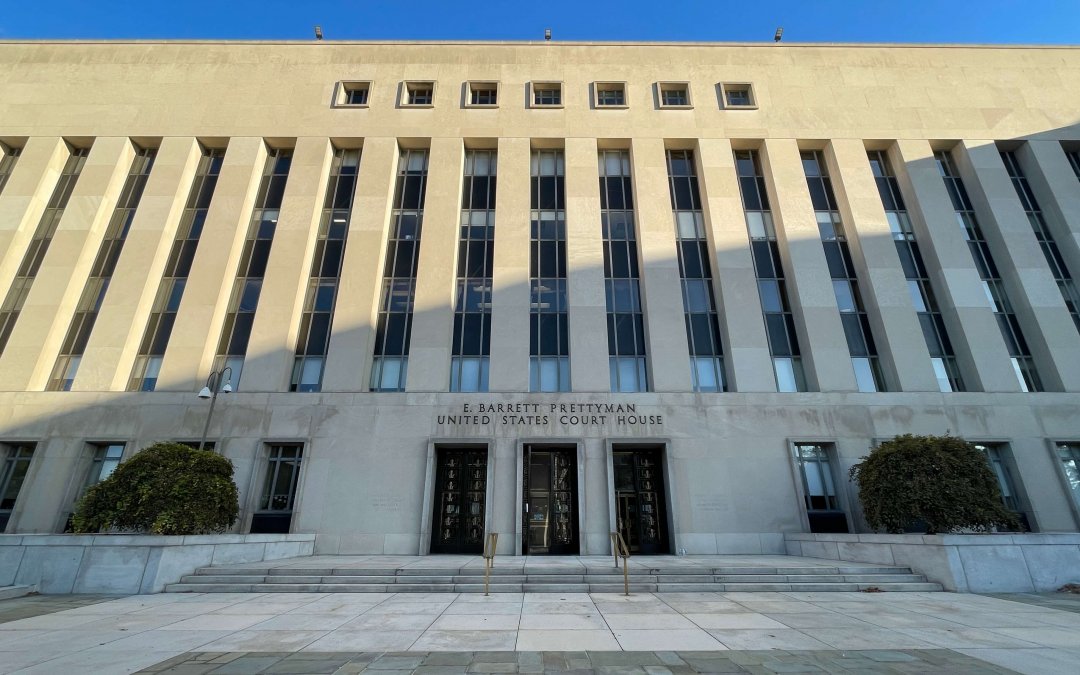WASHINGTON – The head of marketing at Booking.com, the online travel agency, testified in federal court in Washington on Wednesday about Google’s dominance in the search engine and paid search markets – and how companies like his heavily depend on it.
This bench trial is part of a landmark antitrust case filed by the Department of Justice and a group of states three years ago. The lawsuit alleges that Google has illegally maintained a monopoly in the online search business and stifled competition through restrictive contracts with other tech companies. This, in turn, harms consumers and advertisers by limiting their choices and driving up ad prices.
“If you want to be found on the web, there is one door that is controlled by Google, and we need to use that door,” said Arjan Dijk, the Booking.com executive who was previously Google’s vice president of global marketing. “For new customers to come to [Booking.com], we have to use Google.”
Dijk leads Booking.com’s marketing efforts, which involved investing billions of dollars annually to put their ads in users’ search results, according to his testimony. These ads enable the company to connect with high-intent customers, particularly those using search engines to plan and book their travel.
Given that Booking.com’s products, such as hotel reservations and plane tickets, are infrequent purchases for most consumers, Dijk said the company relies heavily on attracting new customers, a significant portion of whom find them through Google ads.
Google’s dominant position among search engines is especially strong in the mobile market, one that Booking.com has increasingly relied upon, Dijk noted. Around 50% of the company’s orders are now completed on mobile devices, he added.
One of the DOJ’s central concerns is whether Google has used monopolistic and potentially unlawful contracts with other companies to secure this dominant position. Of particular interest is Google’s contract with Apple, estimated at $15 billion annually, which designates Google Search as the default search engine for Safari, the pre-installed web browser on all Apple devices, including iPhones and iPads.
Similarly, devices running the Google-developed Android operating system often come preloaded with a search bar on the home screen that directs users to Google Search.
“Being the default is everything,” Dijk said, describing a key business principle of Google during his tenure with the company.
He also said Google has many “levers” to control its search engine, thus influencing the ad market. In recent years, Google has gradually increased the number of ad placements at the top of other, organic search results — those not paid for by advertisers — making them less prominent. Companies like Booking.com even have to bid on ads when customers search their trademarked names, or risk being pushed down the list by search ads paid for by their competitors.
Google, however, has been arguing that its high market share among search engines results from the quality of Google Search, rather than questionable business practices.
In a September news release, Kent Walker, president of global affairs at Google and its parent company Alphabet, defended the company’s contracts with tech firms, comparing them to “a supermarket [charging] a cereal brand to promote its products at eye-level on a shelf or at the end of an aisle.” He also highlights that consumers can easily switch to a different search engine but choose to stay with Google due to its quality.
During Wednesday’s trial, Google’s lawyers downplayed Google’s market dominance, including a masterclass on how customers can enter Booking.com into the address bar of desktop and mobile web browsers to reach the company’s website rather than going through Google Search.
To challenge Dijk’s assertion that the company would not be viable without advertising on Google, the lawyers presented evidence from Booking.com’s quarterly earnings calls between 2019 and 2022, which show success in attracting customers through direct, unpaid channels.
Throughout Wednesday’s bench trial, U.S. District Judge Amit Mehta did not indicate how he intends to rule on this case. He primarily focused on questioning the technicalities of search ads and Booking.com’s business strategies and the extent of Google’s influence over them.
The trial, which commenced in late September, is expected to last ten weeks, concluding in November. A decision is not anticipated until next year and is unlikely to be the final ruling on the case.

